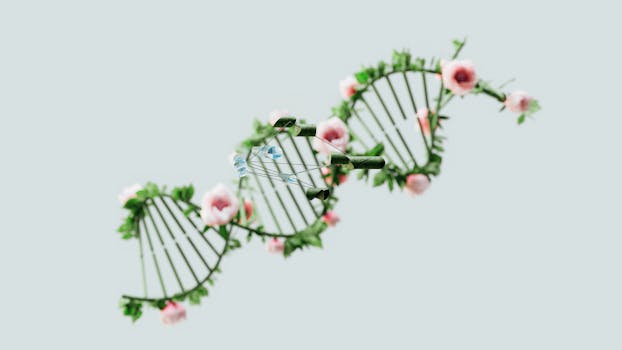
The Role of Genetics in Human Health and Disease
Introduction to Genetics and Its Impact on Human Health

The role of genetics in human health and disease is a complex and multifaceted field of study, with genetics playing a significant role in determining human health and disease. Genetics is the study of heredity, genes, and variation, and it has a profound impact on our understanding of human health and disease. The completion of the Human Genome Project in 2003 marked a significant milestone in the field of genetics, as it provided a comprehensive map of the human genome and paved the way for further research into the role of genetics in human health and disease.
Genetics plays a crucial role in determining human health and disease, as genetic mutations and variations can affect an individual’s susceptibility to certain diseases. For example, genetic mutations in the BRCA1 and BRCA2 genes can increase an individual’s risk of developing breast and ovarian cancer. Similarly, genetic variations in the APOE gene can affect an individual’s risk of developing Alzheimer’s disease.
Genetic Disorders and Their Impact on Human Health

Genetic disorders are conditions that are caused by genetic mutations or variations, and they can have a significant impact on human health. There are many different types of genetic disorders, including single-gene disorders, chromosomal disorders, and multifactorial disorders. Single-gene disorders are caused by mutations in a single gene, and they can have a significant impact on human health. For example, cystic fibrosis is a single-gene disorder that is caused by a mutation in the CFTR gene, and it can cause respiratory and digestive problems.
Chromosomal disorders are caused by changes in the number or structure of chromosomes, and they can also have a significant impact on human health. For example, Down syndrome is a chromosomal disorder that is caused by an extra copy of chromosome 21, and it can cause intellectual disability and other health problems. Multifactorial disorders are caused by a combination of genetic and environmental factors, and they can also have a significant impact on human health. For example, heart disease is a multifactorial disorder that is caused by a combination of genetic and environmental factors, and it can increase an individual’s risk of developing cardiovascular disease.
Genetic Testing and Its Applications in Human Health

Genetic testing is a valuable tool that can be used to diagnose and manage genetic disorders. There are many different types of genetic tests, including predictive tests, diagnostic tests, and carrier tests. Predictive tests can be used to identify individuals who are at risk of developing certain diseases, and they can be used to predict the likelihood of an individual developing a particular disease. Diagnostic tests can be used to diagnose genetic disorders, and they can be used to confirm a diagnosis. Carrier tests can be used to identify individuals who are carriers of a particular genetic mutation, and they can be used to provide information about an individual’s reproductive risks.
Genetic testing has many applications in human health, including reproductive medicine, cancer diagnosis and treatment, and pharmacogenetics. Reproductive medicine is an area where genetic testing can be used to identify individuals who are at risk of passing on genetic disorders to their offspring. Cancer diagnosis and treatment is another area where genetic testing can be used to identify individuals who are at risk of developing certain types of cancer, and to develop targeted treatments. Pharmacogenetics is the study of how genetic variations affect an individual’s response to certain medications, and it can be used to develop personalized treatment plans.
Conclusion

In conclusion, the role of genetics in human health and disease is a complex and multifaceted field of study, with genetics playing a significant role in determining human health and disease. Genetic disorders can have a significant impact on human health, and genetic testing can be used to diagnose and manage these disorders. The applications of genetic testing in human health are numerous, and they include reproductive medicine, cancer diagnosis and treatment, and pharmacogenetics. As our understanding of genetics and its role in human health and disease continues to evolve, it is likely that we will see new and innovative applications of genetic testing in the field of medicine.



